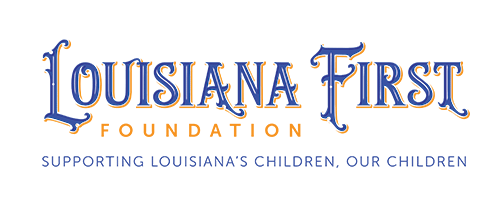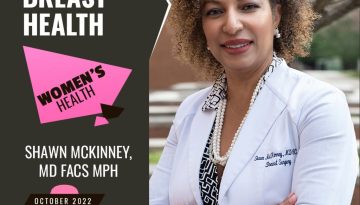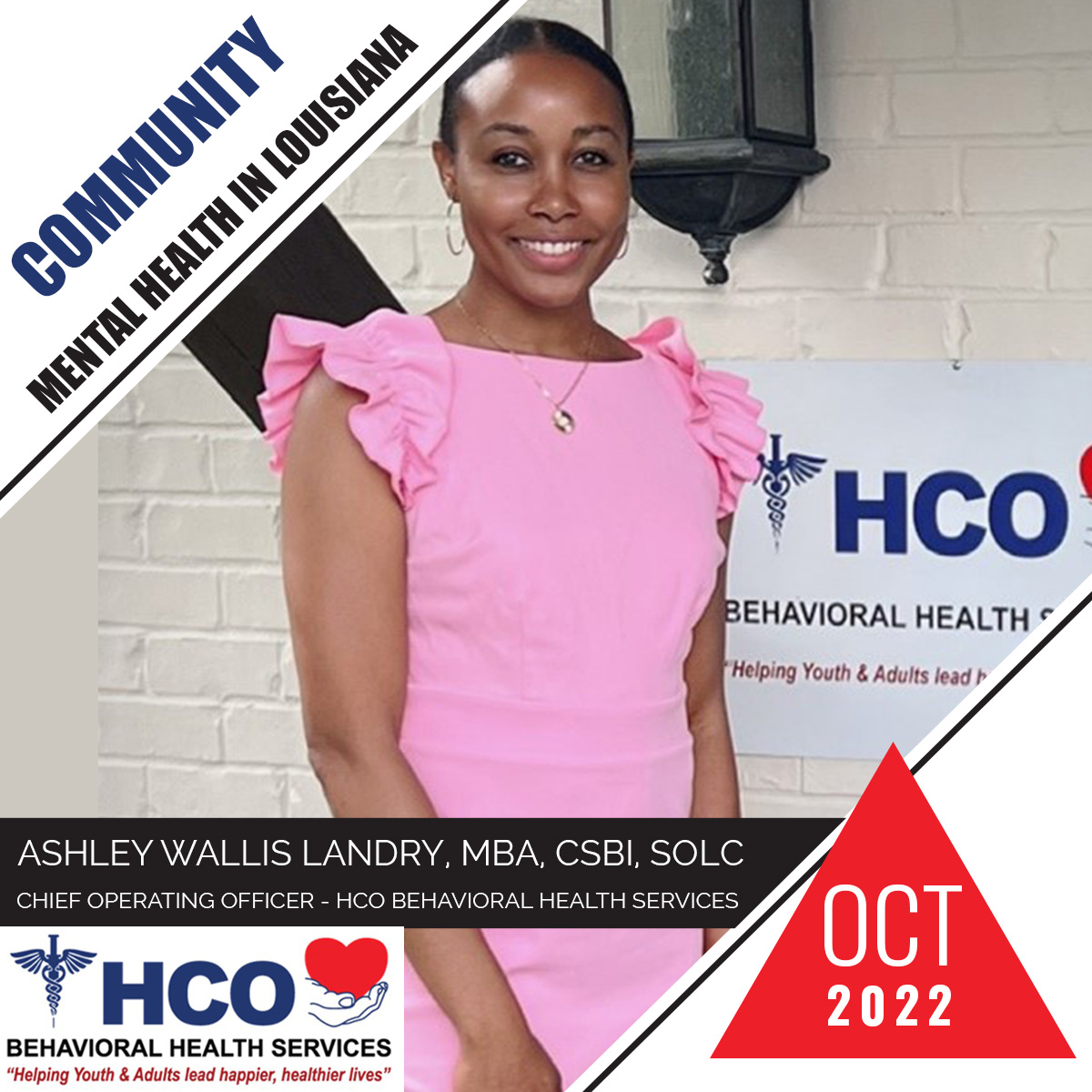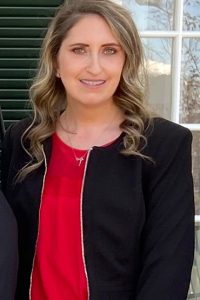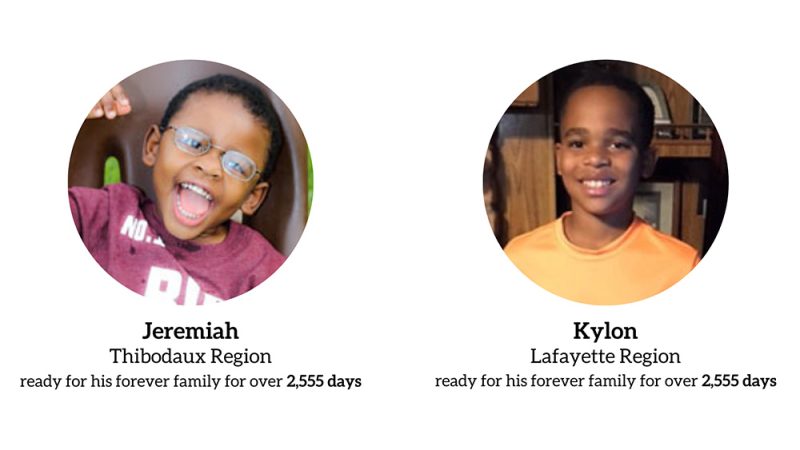Women’s Health – Take Charge of Your Breast Health
Women’s Health
WOMEN'S HEALTH BLOG October 2022
Take Charge of Your Breast Health
Breast cancer has touched each one of us. Unfortunately, one in eight women will develop the disease by the time they turn 80. However, we can be proactive about our breast health by taking the necessary steps to impact our health. So what can you do to take charge of your breast health?
- Do monthly self-breast exams.
In Louisiana, we exceed the national average for women diagnosed with breast cancer below 45, an age that is before any recommended screening imaging guidelines. Noticing changes of the breast such as a mass, nipple discharge that comes out on its own, or skin changes at the earliest point can make a difference in the time to diagnosis and treatment. For women who are having cycles, the best time to perform the exam is about one week after their cycle begins. If you no longer have cycles, pick a consistent time each month. The more you do it, the more comfortable you will be. Report any new changes to your physician.
2. Know your risk classification.
Are you average risk or high risk? Several things contribute to a person’s risk of developing breast cancer.
These include your menstrual and hormone history, family history, abnormal breast biopsies, alcohol intake, and obesity. These factors can be assessed to calculate your individual risk. Women who are high risk can be eligible for earlier screening and advanced imaging such as breast MRI and medications to help reduce their risk.
3. Know your family history.
Only about 5% of the population possesses a significant genetic mutation, but when discovered, it allows for different screening recommendations or surgical interventions. In addition, knowing all types of cancers present on both sides of your family can provide valuable information to see if genetic testing may be indicated.
4. Obtain yearly screening imaging.
Louisiana exceeds the national average for women diagnosed with breast cancer at late stages – when cancer has spread to the lymph nodes or other parts of the body. Mammography is the recommended screening method for women 40 and over and can detect cancer before anything is felt. 3D mammography is better than 2D for detecting abnormalities, especially in women with denser breast tissue.
5. What are the best things that you can do to reduce your risk?
Because obesity, especially in postmenopausal women, is a risk factor, maintaining a healthy weight by incorporating weekly exercise. A diet focusing on reducing sugars and carbohydrates and watching alcohol intake are daily steps women can take. Limiting the combined hormone intake of estrogen and progesterone to less than four years will also reduce your risk. Sustained stress, which reduces the body’s natural immune system, will impact your defenses on a cellular level. Therefore, it is vital to take the time to invest in mindful, stress-reducing activities such as meditation or yoga and do things that regularly bring you joy.
Treatment is highly individualized based on a patient’s presentation, and recommendations are given with the intent to remove the current disease and reduce the chance that it does not return. Breast cancer is treatable, especially if discovered early. It is up to us as women to do the necessary things to ensure we do everything possible to reduce our risk of having the disease. We must ensure early detection becomes a staple in our health maintenance. Let’s all take the time to prioritize ourselves and our health.
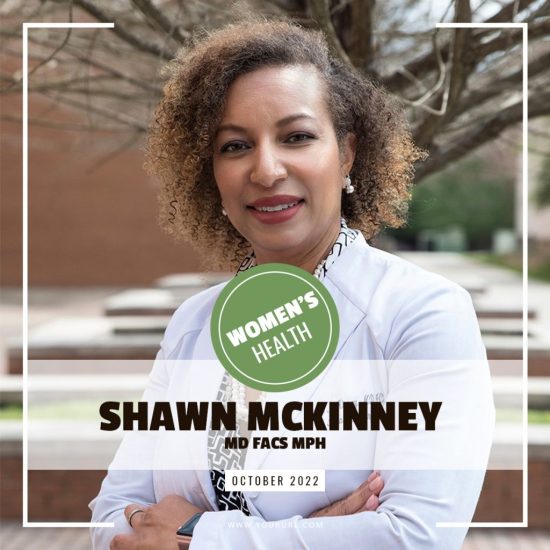
About Shawn McKinney
MD, FACS MPH
Shawn McKinney, a native of New Orleans, LA, currently serves as the Director of Breast Services at University Medical Center New Orleans. She is Professor of Clinical Surgery, specializing in Breast Surgical Oncology at LSU Health Science Center New Orleans. After completing her high school education in New Orleans at Ursuline Academy, she graduated Magna cum Laude with a BS in Chemistry – Premedicine from Xavier University of Louisiana. She attended medical school and then surgical residency at Morehouse School of Medicine in Atlanta, Georgia. After residency, she did a Surgical Breast Fellowship at Baylor University in Dallas, Texas and specialized in this field ever since. In 2018 she completed a Master of Public Health in Health Policy and Health Administration at the University of Southern Mississippi. She brings her expertise back home to New Orleans to facilitate equitable breast care in the city she loves.
